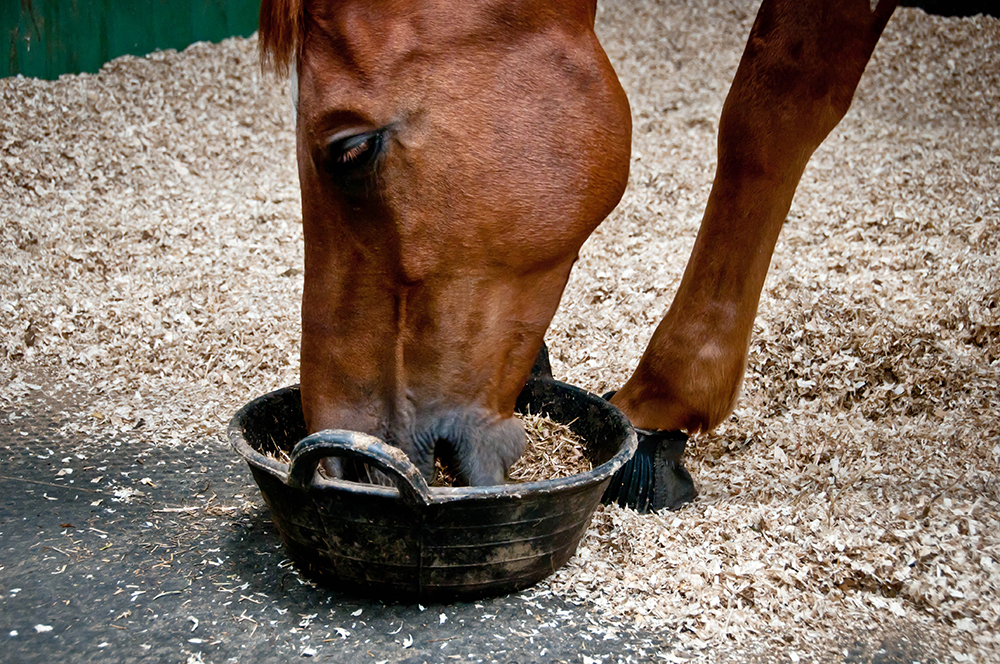Multivitamins for horses are essential for ensuring the overall health and well-being of these majestic animals. Horses, like humans, require a balanced diet to thrive, and sometimes their regular feed may not provide all the necessary nutrients. This is where multivitamins come into play, offering a comprehensive supplement solution to fill dietary gaps.
Equestrian enthusiasts and horse owners often seek ways to enhance their horse’s health. Incorporating multivitamins for horses into their diet can be a game-changer. These supplements support various bodily functions, from boosting immunity to improving coat condition.

Why Are Multivitamins for Horses Needed?
Horses have unique dietary needs that can sometimes be challenging to meet through regular feeding alone. Factors such as age, activity level, and health conditions can influence their nutritional requirements. Multivitamins help bridge the nutritional gap, ensuring that horses receive all the essential vitamins and minerals they need for optimal health.
Key Benefits of Multivitamins for Equine Health
1. Enhanced Immune Function: Vitamins like A, C, and E are vital for maintaining a robust immune system.
2. Improved Coat and Skin Health: Biotin, a common component in multivitamins, promotes healthy skin and a shiny coat.
3. Stronger Bones and Joints: Calcium and phosphorus support bone health, while glucosamine aids in joint function.
4. Optimal Digestion: Ingredients like probiotics and digestive enzymes help in nutrient absorption and digestion.
Understanding Equine Dietary Needs
Every horse is different, and their nutritional needs can vary based on several factors. It’s crucial to understand these needs to ensure your horse receives the right balance of nutrients. An informative resource on equine body condition can provide insights into assessing whether your horse is receiving adequate nutrition.
Choosing the Right Multivitamin Supplement
With numerous options available, selecting the right multivitamin for your horse can be daunting. Consider factors such as the horse’s age, activity level, and specific health concerns. Consulting with a vet can provide personalized recommendations based on your horse’s unique needs.
Ingredients to Look For
When choosing a multivitamin for your horse, look for supplements that include essential vitamins like A, D, and E, as well as minerals like calcium, phosphorus, and magnesium. Additionally, supplements that contain omega-3 fatty acids, probiotics, and amino acids offer additional health benefits.
How to Incorporate Multivitamins into Your Horse’s Diet
Incorporating multivitamins into your horse’s diet should be done gradually to avoid digestive upset. Start with a small dose and gradually increase to the recommended amount. It’s essential to monitor your horse’s response and adjust as needed.
Consulting with a Veterinarian
Before making any changes to your horse’s diet, it’s advisable to consult with a veterinarian. They can provide guidance on the appropriate type and dosage of multivitamins based on your horse’s specific needs and health status.
Common Misconceptions About Horse Supplements
There are several myths surrounding the use of multivitamins for horses. One common misconception is that all horses require the same supplements. In reality, each horse is unique, and their nutritional needs can vary significantly.
The Role of Quality Feed
While multivitamins play an essential role in supplementing a horse’s diet, they should not replace quality feed. Ensuring your horse receives a balanced diet is crucial for their health. Learn more about creating a balanced diet in this article on horse feeding schedule.
Potential Risks and Side Effects
While multivitamins are generally safe, over-supplementation can lead to health issues. It’s crucial to follow the recommended dosage and consult with a veterinarian to avoid potential risks.
Signs of Over-Supplementation
Over-supplementation can lead to symptoms like diarrhea, colic, or even toxicity in severe cases. Monitoring your horse’s health and adjusting their supplement intake as needed is essential.
Monitoring Your Horse’s Health
Regularly monitoring your horse’s health is crucial when using multivitamins. Keep an eye on their coat condition, energy levels, and overall demeanor to ensure they’re benefiting from the supplements.
Regular Check-ups
Scheduling regular veterinary check-ups can help identify any potential health issues early on. A vet can assess your horse’s overall health and provide recommendations on their diet and supplement regimen.
Understanding the Cost-Benefit Ratio
Investing in multivitamins for your horse can seem costly initially, but the long-term benefits often outweigh the expense. Healthier horses are less prone to illness, reducing veterinary costs over time.
Economical Choices
There are budget-friendly options available that still offer quality ingredients. Researching and comparing products can help you find the best multivitamin for your horse without breaking the bank.
Conclusion: Prioritizing Your Horse’s Health
Ensuring your horse receives the right balance of nutrients is essential for their health and longevity. Multivitamins for horses can play a pivotal role in achieving this balance, offering numerous health benefits. By understanding your horse’s unique needs and working with a veterinarian, you can make informed decisions about their dietary supplements.

FAQ
Do all horses need multivitamins?
Not all horses require multivitamins, but they can benefit many, especially those with specific dietary needs or health conditions. Consulting with a vet is advisable to determine if supplements are necessary for your horse.
Can I give human vitamins to my horse?
It is not recommended to give human vitamins to horses. Horses have different nutritional needs, and using supplements specifically formulated for them is crucial.
How often should I give my horse multivitamins?
The frequency of giving multivitamins depends on the product and your horse’s needs. Always follow the manufacturer’s instructions and consult with a veterinarian for personalized advice.
For further understanding of diagnosing nutritional problems in horses, you can visit this external resource.
This article contains affiliate links. We may earn a commission at no extra cost to you.
